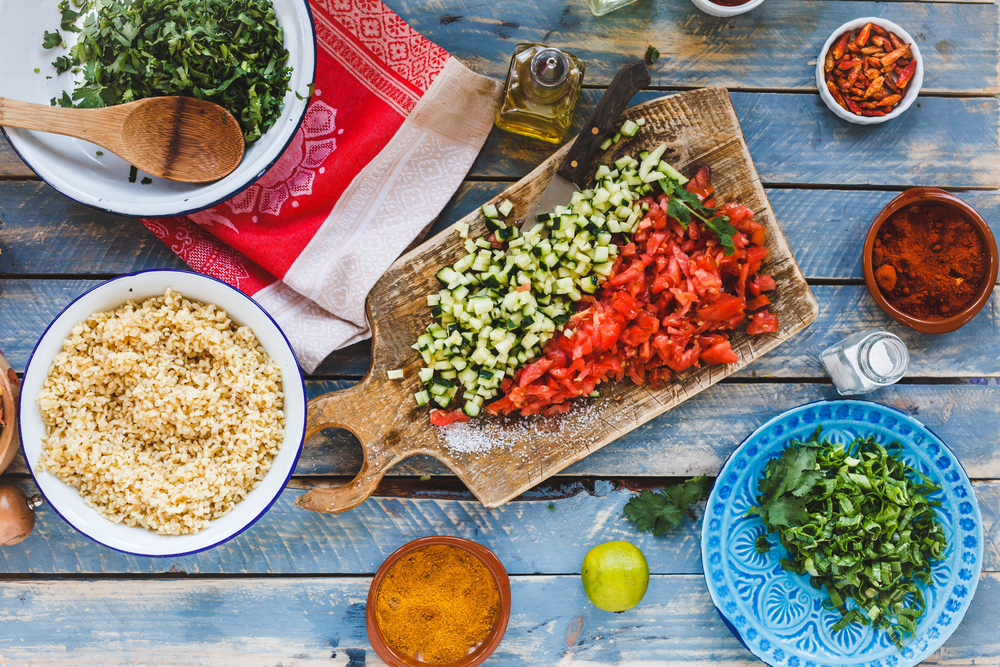Diet
Healthy Mediterranean Options
Mediterranean cuisine is widely accepted as one of the healthier diets to eat, filled with lean protein, vegetables, and whole grains. But be aware that there are pitfalls even in the best of dining. Being aware of the smarter choices before you peruse the menu will help ensure a delicious and healthy meal.
- Falafel – Be sure to ask how this tasty treat is prepared. If it is fried, that can lead to significantly higher fat and calories. Baked is always a better option.
- Salata – Salad always sounds healthier than any other side dish. This one in particular is lettuce-free; instead, it is made up of cucumbers, tomatoes, olives, onions, and feta cheese. If possible, get the dressing on the side and add it sparingly.
- Hummus – Typically made from chickpeas, olive oil, tahini, salt, garlic, and lemon juice, this dip can be a delicious and filling appetizer or side dish. While it is not really low-calorie, it is high in fiber and protein which will fill you up. Try to avoid the pita bread and ask if you can have fresh vegetables to dip instead.
- Souvlaki – Difficult to say, easy to enjoy! This is the Greek ‘kabob’ — marinated, skewered, and grilled protein and vegetables. Tzatziki is a delicious yogurt and cucumber dip that pairs well with this grilled entrée.
- Tabouli – Possibly one of the best side dishes you can order in a Mediterranean restaurant! If you can substitute your rice for this salad mixture, you are in good shape. It contains multiple ‘super-foods’ such as bulgur wheat, onions, garlic, parsley, cucumbers, tomatoes, lemon juice, and olive oil.
Do try to avoid the Moussaka and the Baklava as well as anything in phyllo pastry. All of these will exponentially increase the fat and calories of your meal unnecessarily.

